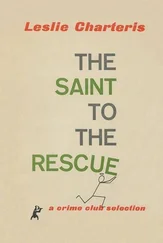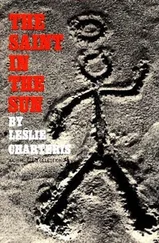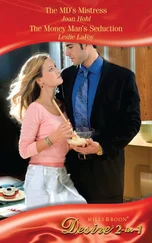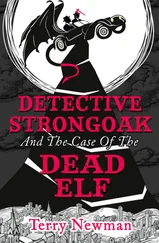On the long drive, Sterling had awakened and for an instant forgot where he was and what had happened. But the instant he saw Seese huddled in the front passenger seat, Sterling had remembered. Somehow Seese had been crushed by whatever had happened the night of the shoot-out at the bar. All Sterling knew was two others in the room with Seese had been killed by the police. Since that morning, all Sterling had said to her was “Can I bring you anything?” and “I hope you’re feeling better” because even the most simple words seemed to break Seese down, and tears had welled up in her eyes whenever she tried to speak.
Lecha had stopped in Albuquerque for gas before they headed west. Albuquerque still looked normal, as if nothing were happening because Albuquerque was five hours by car from the border — a distance safe enough that those fleeing Tucson and El Paso had relocated there. Albuquerque appeared to be booming. Sterling looked out the window at people walking to their cars from the shopping malls and from the K marts. The faces he saw were placid. The shoppers didn’t seem to have a clue about what was happening. Maybe they had noticed a few more U.S. government cars on the street, or increased military-helicopter flyovers, but that was all. On the West Side, Sterling could tell the people didn’t know either, because the faces had been excited, happy, even joking. They didn’t know, and Sterling knew even if someone told them, they would not believe it. Sterling had not believed the old prophecy either, but he had seen what was happening in Tucson with his own eyes.
Lecha had claimed certain human beings sensed danger and began reacting without being conscious of what they were preparing for. They had no idea others like themselves existed as they worked alone with feverish plots and crazed schemes. But all that mattered was, they were making preparations. When the time came, all these scattered crazies and their plans would complement and serve one another in the chaos to come. The people would be smarter this time. They had learned from Watts and from police bombs in Philadelphia; the people would head for the fancy high-rent districts so when police firebombed the protest marchers, the Ferraris and the fur coats would go up in smoke too.
What would these people in Albuquerque do when they heard about the twin brothers and their followers? How would the Native Americans and Mexican Americans in New Mexico react when the U.S. military opened fire on the twin brothers and thousands of their followers, mostly women and children? How many of these Chicanos and these Indians had ever heard the old stories? Did they know the ancient prophecies? It all seemed quite impossible, and yet one only had to look as far as Africa to see that after more than five hundred years of suffering slavery and bloodshed, the African people had taken back the continent from European invaders. Sterling shuddered when he remembered the terrible price the tribal people of South Africa had had to pay while the nations of the world had stood back and watched.
Lecha warned that unrest among the people would grow due to natural disasters. Earthquakes and tidal waves would wipe out entire cities and great chunks of U.S. wealth. The Japanese were due to be pounded by angry earth spirits, and the world would watch in shock as billions of dollars and thousands of lives were suddenly washed away. Still there would be no rain, and high temperatures would trigger famines that sent refugees north faster and faster. The old almanac said “civil strife, civil crisis, civil war.” Allies of the United States would decline to intervene or send military aid. England and France would cite the distances and the costs and point out that no “armed force” threatened the U.S. border, only thousands of defenseless and hungry refugees from the war-torn South. Lecha’s reading of the old book had Canada alone proclaiming herself a U.S. ally in this last big Indian war. The Germans would follow the lead of the Japanese, who wanted to watch and to wait until the dust settled. Of course all of the northern European nations would find themselves in similar predicaments with massive onslaughts of refugees from the South. Lecha had even dreamed the streets of downtown Amsterdam were full of Indians from all the tribes of the Americas. She had seen only Indians crowding the streets of Amsterdam and no Dutch; many of the Indians had looked pale, as if they had been born there.
When Sterling caught a glimpse of the distant blue peaks of Mt. Taylor, his throat tightened and tears ran down his cheeks. Woman Veiled in Rain Clouds was what the old people had called the mountain. Sterling was home. Sterling asked Lecha to drop him off near Mesita Village where Interstate 40 cut through the red sandstone. Seese had been crying too hard to say good-bye; she had clung to Sterling. “It’s all right,” he heard himself say over and over, “don’t worry,” but the roar of the vehicles that sped past had obliterated his words. The emergency lane of Interstate 40 was no place for long good-byes. Lecha had pulled an envelope from her purse. “You might need some money,” she said. They shook hands. Seese had hugged Sterling one last time, tears streaming down her face, and then Sterling had slammed the car door, and the old white Lincoln had roared off.
HOME
 STERLING HIKED over the little sand hills across the little valley to the sandstone cliffs where the family sheep camp was. The windmill was pumping lazily in the afternoon breeze, and Sterling washed his face and hands and drank. The taste of the water told him he was home. “Home.” Even thinking the word made his eyes fill with tears. What was “home”? The little stone shack seemed to be deserted although Sterling had found an empty Vienna sausage can on the little wood-burning stove. On the shelf there were two coffee cans; inside he had found dry pinto beans and some sugar.
STERLING HIKED over the little sand hills across the little valley to the sandstone cliffs where the family sheep camp was. The windmill was pumping lazily in the afternoon breeze, and Sterling washed his face and hands and drank. The taste of the water told him he was home. “Home.” Even thinking the word made his eyes fill with tears. What was “home”? The little stone shack seemed to be deserted although Sterling had found an empty Vienna sausage can on the little wood-burning stove. On the shelf there were two coffee cans; inside he had found dry pinto beans and some sugar.
Sterling didn’t think what he was experiencing was depression; it felt more like shock. For three days Sterling lay stunned; he could barely swallow water. On the fourth day Sterling awoke and no longer felt exhausted, but he had felt different. He didn’t have the heart to look at his magazines anymore. He didn’t even glance in the direction of his shopping bags. The magazines referred to a world Sterling had left forever, a world that was gone, that safe old world that had never really existed except on the pages of Reader’s Digest in articles on reducing blood cholesterol, corny jokes, and patriotic anecdotes.
Sterling cooked beans in the tin coffeepot and went for a walk in the field of sunflowers below the windmill. He had never spent so much time before alone with the earth; he sat below the red sandstone cliffs and watched the high, thin clouds. Far in the distance, he could hear jet airplanes, Interstate 40, and the trains. But Sterling found it was easy to forget that world in the distance; that world no longer was true. He purposely kept his mind focused on the things he could see or touch; he avoided thinking about the day before or even the hour before, and he did not think about tomorrow. He watched the tiny black ants busily gather food for the ant pile. Aunt Marie and the old people had believed the ants were messengers to the spirits, the way snakes were. The old people used to give the ants food and pollen and tiny beads as gifts. That way the ants carried human prayers directly underground. Sterling had spooned out a few cooked beans on the ant hill, but he couldn’t think of a prayer to say, or even a message to send to the spirits of the earth. But the ants didn’t worry about prayers or messages; they swarmed excitedly over the beans. Sterling watched them work for a long time; sometimes the ant workers had almost been crushed under beans they were carrying. The ants worked steadily, and by sundown they had taken all the beans underground. Sterling did not understand why, but the success of the ants had lifted his spirits. He wished he had listened more closely to Aunt Marie and her sisters, for he might have understood better the connection between human beings and ants.
Читать дальше
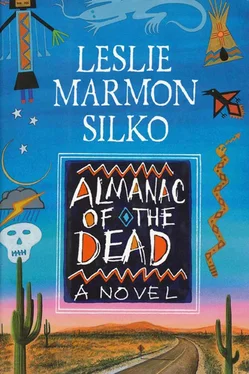
 STERLING HIKED over the little sand hills across the little valley to the sandstone cliffs where the family sheep camp was. The windmill was pumping lazily in the afternoon breeze, and Sterling washed his face and hands and drank. The taste of the water told him he was home. “Home.” Even thinking the word made his eyes fill with tears. What was “home”? The little stone shack seemed to be deserted although Sterling had found an empty Vienna sausage can on the little wood-burning stove. On the shelf there were two coffee cans; inside he had found dry pinto beans and some sugar.
STERLING HIKED over the little sand hills across the little valley to the sandstone cliffs where the family sheep camp was. The windmill was pumping lazily in the afternoon breeze, and Sterling washed his face and hands and drank. The taste of the water told him he was home. “Home.” Even thinking the word made his eyes fill with tears. What was “home”? The little stone shack seemed to be deserted although Sterling had found an empty Vienna sausage can on the little wood-burning stove. On the shelf there were two coffee cans; inside he had found dry pinto beans and some sugar.
